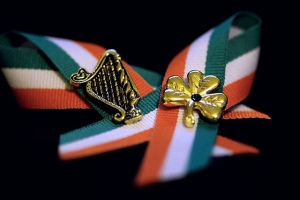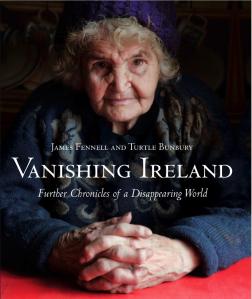I just bought a couple of books called Vanishing Ireland and the faces of all the older men and women in the book remind me of the adults I saw on the street, in the field or in the homes of Ireland when I was growing up during the 70’s and 80’s.
Lined faces from working out doors in all kinds of weather, a hardy stock of men and women who were not afraid of hard work.
The last post I wrote was about Irish Mammies and their sayings. It ties in well with the faces that stare back at you from the pages of Vanishing Ireland.
The older generation of Irish spoke in a way that is quickly becoming obsolete. Language is a living thing though, so I guess it is to be expected. But before certain words and sayings do disappear from the Irish dialect, I’d like to share a few with you here, some are directly from the book Isn’t it well for ye?: The Book of Irish Mammies by Colm Regan.
You might like to learn a few off by heart and have them ready to go for Saint Patrick’s Day, Sunday March 17th.
“Musha/Wisha: Filler words that are used in sentences that express doubt or rejection of an action”
Latchiko: Someone who is idle or being deliberately useless.
Here’s a few of my own words that were heard often enough in my home place:
Whist: A warning to be quiet, followed by a clip on the ear if you didn’t heed the first warning.
Yearra: Ah well sure, what difference, it is what it is.
Boyo: A latchiko with a purpose in mind, usually that purpose involves a girl and it is usually a sexual purpose.
Ejit/Ijit: A latchiko with no purpose in mind at all, not even a sexual one.
Tay: Tea
Your man/Yer man: The fella whose name you can’t remember
Your one/Yer won: The woman whose name you can’t remember
The Shift: A one night kissing session with yer man/yer won.
In County Galway, when you are starving with the hunger you’re so hungry you could, “Eat a child’s arse through a chair.” But in Tipperary you could, “Eat a farmer’s arse through a ditch.” Tipperary people would eat anything, wouldn’t they?
Going on the tear: (as in tearing a piece of paper, not tear drop) Getting absolutely polluted drunk.
My back teeth are floating: Having done the tear, you now have alcohol up to neck level in your digestive tract.
Rashers: Breakfast bacon.
Well done: (in reference to cooked meat) Cremated.
A drop of tay: a cup of tea.
A scrape of toast: A slice of toasted bread.
A googie: A boiled egg.
Kauld: Cold
Ould: Old
A damp ould bastard of a day: A rainy day, a regular occurrence in Ireland.
A close day: a humid day.
The ould lad/ The old man: Father
The ould won/ The old woman: Mother
Ye:You plural.
Ya: You singular.

The typical lapel pins worn by the Irish in lieu of a shamrock sprig on Saint Patrick’s Day in Ireland (Photo from http://www.flickr.com/photos/scribe13/3363076355/)
And if you’ve read this to the very end, well done. Here’s a tad bit more information about Patrick’s Day in Ireland. No one wears head to toe green, no one. We wear sprigs of shamrock or ribbons with the Irish flag and a gold harp or shamrock on them.
So now you know. Happy Saint Patrick’s Day 2013.
And remember, “You’ve got to do your own growing, no matter how tall your father was.”

